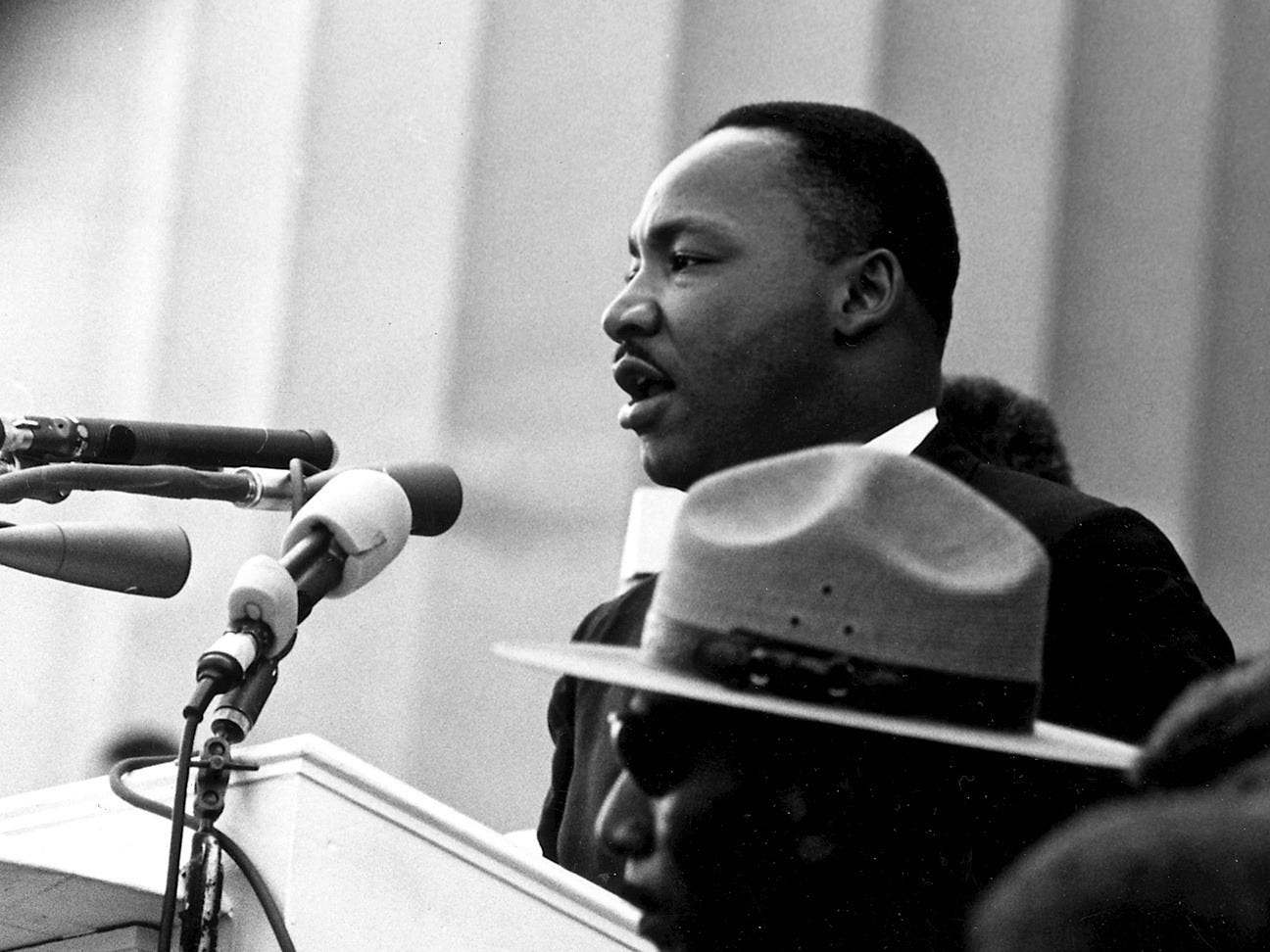So Donald Trump is being inaugurated, for the second time, with his tech oligarch allies on hand to celebrate, on Martin Luther King Jr Day, of all days. As this grim and absurd era begins, I thought it fitting to share some of King’s commentary on technology, power, and capitalism that’s stuck with me over the years.
Yes, on top of everything else, King was an effective tech critic, and I think you’ll find that a lot of his thinking and speechifying on the subject is still quite relevant. Much of it still retains its power, and some might prove useful in the days ahead.
From the Massey lectures, which King delivered in 1967, just months before his death:
Mammoth productive facilities with computer minds, cities that engulf the landscape and pierce the clouds, planes that almost outrace time - these are awesome, but they cannot be spiritually inspiring. Nothing in our glittering technology can raise man to new heights, because material growth has been made an end in itself, and, in the absence of moral purpose, man himself becomes smaller as the works of man become bigger. Gargantuan industry and government, woven into an intricate computerized mechanism, leave the person outside. The sense of participation is lost, the feeling that ordinary individuals influence important decisions vanishes, and man becomes separated and diminished.
When an individual is no longer a true participant, when he no longer feels a sense of responsibility to his society, the content of democracy is emptied. When culture is degraded and vulgarity enthroned, when the social system does not build security but induces peril, inexorably the individual is impelled to pull away from a soul-less society. This process produces alienation - perhaps the most pervasive and insidious development in contemporary society.
From King’s Nobel Prize lecture, given December 11, 1964:
This evening I would like to use this lofty and historic platform to discuss what appears to me to be the most pressing problem confronting mankind today. Modern man has brought this whole world to an awe-inspiring threshold of the future. He has reached new and astonishing peaks of scientific success. He has produced machines that think and instruments that peer into the unfathomable ranges of interstellar space. He has built gigantic bridges to span the seas and gargantuan buildings to kiss the skies. His airplanes and spaceships have dwarfed distance, placed time in chains, and carved highways through the stratosphere. This is a dazzling picture of modern man’s scientific and technological progress.
Yet, in spite of these spectacular strides in science and technology, and still unlimited ones to come, something basic is missing. There is a sort of poverty of the spirit which stands in glaring contrast to our scientific and technological abundance. The richer we have become materially, the poorer we have become morally and spiritually. We have learned to fly the air like birds and swim the sea like fish, but we have not learned the simple art of living together as brothers.
Every man lives in two realms, the internal and the external. The internal is that realm of spiritual ends expressed in art, literature, morals, and religion. The external is that complex of devices, techniques, mechanisms, and instrumentalities by means of which we live. Our problem today is that we have allowed the internal to become lost in the external. We have allowed the means by which we live to outdistance the ends for which we live. So much of modern life can be summarized in that arresting dictum of the poet Thoreau: “Improved means to an unimproved end”. This is the serious predicament, the deep and haunting problem confronting modern man. If we are to survive today, our moral and spiritual “lag” must be eliminated. Enlarged material powers spell enlarged peril if there is not proportionate growth of the soul. When the “without” of man’s nature subjugates the “within”, dark storm clouds begin to form in the world.

From King’s “Beyond Vietnam” speech in April 1967:
We must rapidly begin...we must rapidly begin the shift from a thing-oriented society to a person-oriented society. When machines and computers, profit motives and property rights, are considered more important than people, the giant triplets of racism, extreme materialism, and militarism are incapable of being conquered.
A true revolution of values will soon cause us to question the fairness and justice of many of our past and present policies. On the one hand, we are called to play the Good Samaritan on life's roadside, but that will be only an initial act. One day we must come to see that the whole Jericho Road must be transformed so that men and women will not be constantly beaten and robbed as they make their journey on life's highway. True compassion is more than flinging a coin to a beggar. It comes to see that an edifice which produces beggars needs restructuring.
Here’s to restructuring the edifices — mammoth productive facilities with computer minds indeed — to produce fewer beggars and oligarchs alike.


